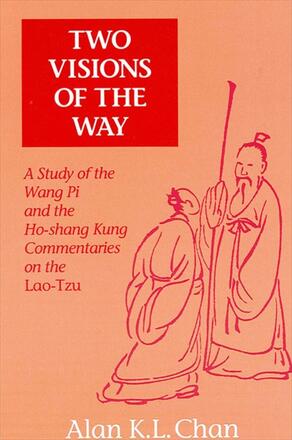
Two Visions of the Way
A Study of the Wang Pi and the Ho-shang Kung Commentaries on the Lao-Tzu
Alternative formats available from:
Alan K. L. Chan is Assistant Professor of Religion at the University of Manitoba.
Reviews
"The Ho-shang Kung commentary played a central role in the elaboration of religious Taoism, while the metaphysically oriented Wang Pi commentary was important to the articulation of Buddhist ideas and to the development of neo-Confucianism. Chan is able to identify and to articulate clearly the various questions surrounding both authors and texts. He then provides answers that are about as full and persuasive as the extant sources will allow. In this regard, his ability to utilize fully the best of the Japanese secondary literature insures that his starting point for discussions is fully informed. One comes away from the book feeling confident that the full range of historical and commentarial sources have been examined and brought into play where relevant. "— Roger T. Ames
"The work is very useful in that it not only translates large chunks of both commentaries and compares the thought found therein, but also provides relevant background on the two commentaries summarizing the latest scholarship on these points. Anyone interested in the text of Lao-tzu and anyone interested in early developments in the areas of Taoist philosophy and religion will find this very informative. "— Robert G. Henricks
"The topic is important in itself as making clear the distinction between the two chief commentaries to the most translated book of Chinese literature. The topic is central to the most important question of Taoism: is it a philosophy or a religion? Chan's book will shed valuable light on the transition between the two, and will enliven our understanding of the intellectual milieu of the Han period. "— Benjamin E. Wallacker